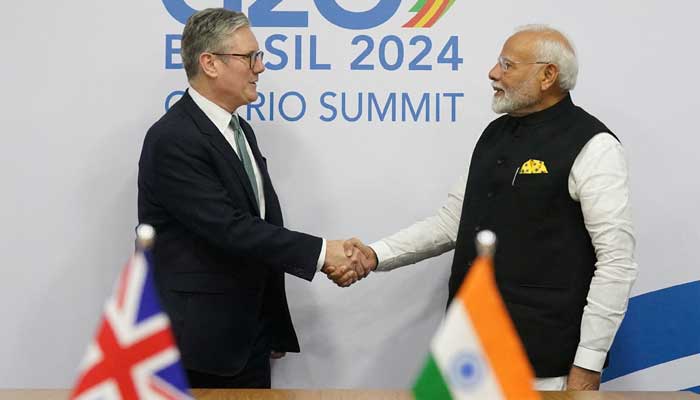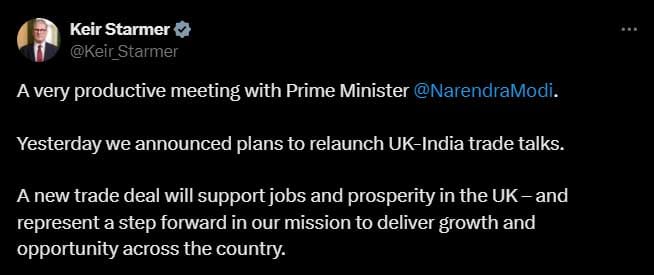
- Starmer praised his meeting with the Indian Prime Minister as “very productive.”
- UK and India deepen cooperation on ‘security, education and technology’.
- The two leaders stressed the “importance of resuming” negotiations.
Britain and India will resume stalled talks to reach a free trade agreement, the two countries announced after their leaders met at the G20 summit in Brazil.
Prime Minister Keir Starmer, who took power in London in July, hailed his meeting with his Indian counterpart Narendra Modi as “very productive” and pledged that the trade deal with Delhi would boost growth in the UK.
“The new trade deal will support UK jobs and prosperity – and represents a step forward in our mission to deliver growth and opportunity across the country,” he wrote on X late on Monday.

Hours ago, Starmer’s office confirmed that the two countries will relaunch the talks “in the new year” as Britain seeks “a new strategic partnership with India.”
This will include “deepening cooperation in areas such as security, education, technology and climate change,” Downing Street said in a statement summarizing the two leaders’ meeting.
The Indian Foreign Ministry said that the two leaders “stressed the importance of resuming FTA negotiations at an early date.”
He added that they “expressed their confidence in the ability of the negotiating teams to address the remaining issues to the satisfaction of both parties, leading to a balanced, mutually beneficial and forward-looking free trade agreement.”
The two countries spent nearly three years negotiating what could be a milestone for Britain as it continues to search for alternative markets after its exit from the European Union.
The previous Conservative government, which was ousted by Starmer’s Labor Party in July, faced several obstacles in its talks with New Delhi over the trade agreement.
In return for lowering tariffs on British imports such as whisky, India has pushed for more UK work and study visas for its citizens.
But Rishi Sunak, Starmer’s predecessor in Downing Street, took an increasingly tough line on immigration during his 20-month term as he faced a backlash over record immigration levels in the wake of the Covid pandemic.
His government unveiled a set of measures in late 2023 aimed at reducing the numbers.
Starmer has prioritized kick-starting weak economic growth in the UK, but his administration is also under pressure over the controversial issue.
Britain has concluded a number of post-Brexit trade deals, including with Australia, New Zealand and Singapore, and is set to join the Comprehensive and Progressive Agreement for Trans-Pacific Partnership (CPTPP) next month.
But a much-needed trade deal with the United States remains elusive, and Canada also stumbled on an agreement earlier this year.
